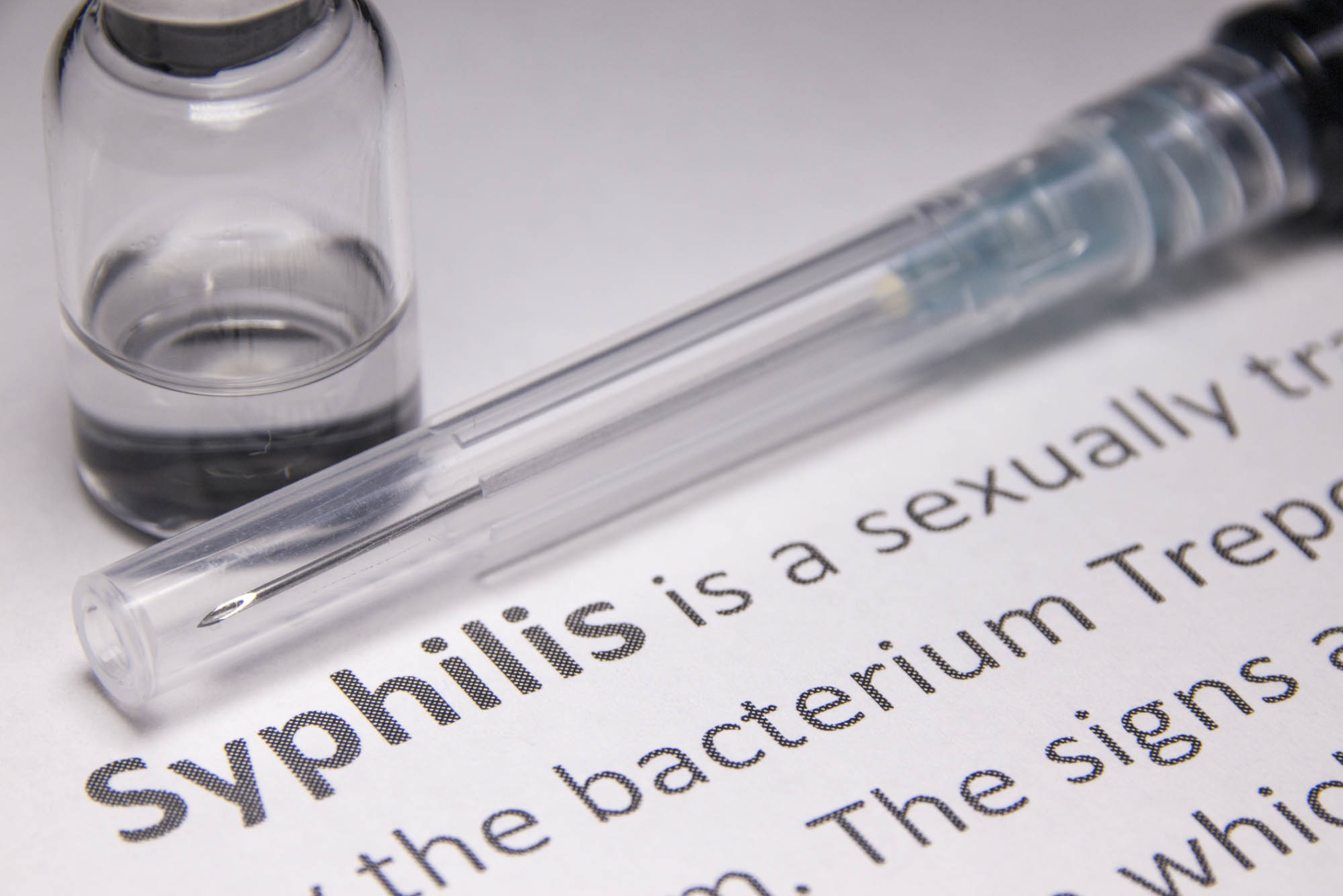Student Health Services Launches New Low-Cost Self-Pay Option for STI and STD Testing
Applies to students with private, out-of-state–based insurance plans who don’t want their family’s insurance billed

Student Health Services is on a mission to reduce barriers to STD and STI testing. One good reason to get tested? In 2022, rates of syphilis reached their highest levels since the 1950s, the CDC says. Photo by Hailshadow/iStock
Student Health Services Launches New Low-Cost Self-Pay Option for STI and STD Testing
Applies to students with private, out-of-state–based insurance plans who don’t want their family’s insurance billed
Sexually transmitted diseases and infections are continuing to rise across the United States. A recent report by the Centers for Disease Control and Prevention (CDC) reports that there were more than 2.5 million cases of chlamydia, syphilis, and gonorrhea in 2022 and that syphilis, in particular, is spiking: according to the CDC, in 2022, syphilis rates reached their highest levels since the 1950s.
The trends have played out slightly differently at Boston University this academic year.
“The top lab tests in our primary care clinic are for STI testing,” says Hannah Landsberg (Sargent’12, SPH’13), Student Health Services (SHS) associate director. “Chlamydia continues to be the most frequently diagnosed bacterial sexually transmitted infection among BU students.” However, she adds, “so far, the positivity rate for chlamydia and syphilis is less than in previous years, while the positivity rate of gonorrhea continues to increase.”
Last year, SHS launched new, easier testing protocols to encourage more students to get tested for STIs and STDs. The protocols—which eliminated the need to schedule a prescreening appointment—worked: according to Landsberg, SHS tested an additional 600 students for STIs and STDs last year.
Now, SHS has a new tool to reduce barriers to STD and STI testing: a self-pay option for students with private, out-of-state–based insurance plans.
How does it work?
Normally, a laboratory bills a patient’s insurance company for services conducted at an appointment. The insurance plan holder—for students, that’s often a parent or guardian—may receive an explanation of benefits (EOB) letter with a breakdown of services and their costs. If services at your last appointment included STD and STI testing, you might not want your parents to know. (FYI, an EOB will never share actual test results.) That’s where the self-pay option comes in.
For students who don’t have BU’s Student Health Insurance Plan (SHIP) and instead have a non–Massachusetts-based private insurance plan, you now have the option to pay for your STD and STI testing out of pocket, at a reduced cost, without involving your insurance company. (See a breakdown of the out-of-pocket costs here.)
“The introduction of the self-pay option is part of our ongoing efforts at SHS to reduce barriers to STI testing,” Landsberg says. “By offering this option, individuals worried about privacy or safety regarding the disclosure of lab tests to their parent or guardian can now undergo testing at SHS without these concerns. Our goal is for more and more students to utilize STI testing to know their status and prevent infections.”
Questions? Ask your SHS provider for more information or reach out to a nurse on Patient Connect.
What if you have a private insurance plan that’s based in Massachusetts? For students with in-state insurance, like Blue Cross Blue Shield of Massachusetts, it’s still possible to make sure information about your lab tests doesn’t get shared with your parent or guardian. Before your appointment, reach out to your insurance company and request that they send the EOB to you, not the planholder. (Find a script to use for calling your insurance company here.)
As for students with SHIP: students will always receive free STI and STD testing at SHS and will not be sent an EOB.
SHS also treats STDs and STIs—and the sexual partners of BU students—and can anonymously notify any of your sexual partners if you have a positive test result. For preventive care, SHS provides the HPV vaccine and PrEP (pre-exposure prophylaxis) services to prevent HIV. The Condom Fairy, run by SHS Health Prevention & Promotion, mails free and anonymous safe-sex supplies to students living on campus and off. Additionally, SHS offers prescriptions for emergency contraception. Students can also utilize the emergency contraception vending machine in the GSU basement.
Off campus, students can access STI and STD testing through organizations like Fenway Health and Planned Parenthood.
Ultimately, it doesn’t matter how you access safe-sex supplies or testing. What does matter is making use of the services at your disposal and encouraging your sexual partners to do the same.
“Testing, vaccines, condoms, honest conversations about sex—all of it’s intertwined,” Landsberg told BU Today when SHS launched its new testing protocols. “It’s similar to how we’re thinking about [preventing the spread of] COVID-19 with mask-wearing, vaccines, and public outreach. You need all of these things in order to have healthy relationships and healthy sex.”
Find more information about STI and STD testing at SHS and the new self-pay option here.

Comments & Discussion
Boston University moderates comments to facilitate an informed, substantive, civil conversation. Abusive, profane, self-promotional, misleading, incoherent or off-topic comments will be rejected. Moderators are staffed during regular business hours (EST) and can only accept comments written in English. Statistics or facts must include a citation or a link to the citation.